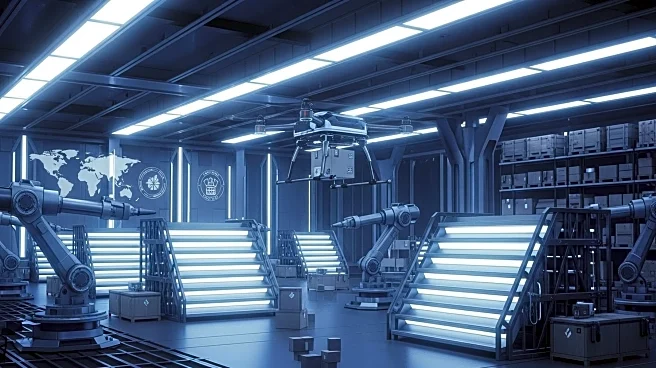What's Happening?
Recent research highlights the growing importance of autonomy in supply chains as companies face disruptions from pandemics, geopolitical tensions, and economic shifts. Despite efforts to enhance risk-readiness, many organizations struggle with operational rigidity, leading to slower recovery and increased costs. Accenture's study reveals a decline in operational resilience, with only a small percentage of companies achieving long-term profitable growth. The research underscores the need for supply chains to be agile and sustainable, with advancements in AI driving autonomy as a key strategy for resilience.
Why It's Important?
The shift towards autonomous supply chains is critical for companies aiming to improve their resilience against disruptions. By increasing autonomy, organizations can reduce reaction and recovery times, enhance customer service metrics, and achieve cost savings. This transformation is not only about efficiency but also about maintaining market relevance and profitability in a volatile environment. As companies invest in AI and automation, they position themselves to better handle future challenges, ensuring sustained performance and competitive advantage.
Beyond the Headlines
The move towards autonomy also impacts workforce dynamics, with AI augmenting human roles rather than replacing them. This shift enhances employee engagement and productivity, addressing talent retention challenges. Additionally, the focus on autonomy aligns with sustainability goals, reducing carbon emissions and improving labor productivity. As companies navigate barriers like data quality and cybersecurity, redefining roles for AI-human collaboration becomes essential for unlocking the full potential of autonomous systems.









